Retro Replay Review
Gameplay
Street Sk8er offers an immediately accessible trick system that sets it apart from the more complex controls of later skateboarding titles like Tony Hawk’s Pro Skater. Instead of memorizing long button combinations, you trigger grinds, flips, and grabs with simple directional inputs plus one face button. This streamlined approach makes it easy for newcomers to pull off flashy moves without lengthy practice sessions.
(HEY YOU!! We hope you enjoy! We try not to run ads. So basically, this is a very expensive hobby running this site. Please consider joining us for updates, forums, and more. Network w/ us to make some cash or friends while retro gaming, and you can win some free retro games for posting. Okay, carry on 👍)
The level progression in Street Sk8er is built around linear course designs, each with clearly defined start and finish points. Players race against the clock to rack up points by chaining tricks and discovering hidden areas. While this structure can feel restrictive compared to open-ended free-roam modes, it keeps objectives focused and lends a satisfying rhythm to each run.
Character selection adds variety to the gameplay loop. You can choose from several skaters, each with slightly different stats in speed, balance, and trick height, and switch between different deck shapes and wheel types to fine-tune performance. As you complete challenges, hidden characters and bonus stages unlock, offering fresh environments and increased replay value for collectors and completionists alike.
Challenges range from high-score hunts and time trials to special trick challenges. Although the objectives become repetitive over time, the tight control scheme and the rush of chaining long combos help maintain momentum. For players seeking a pick-up-and-play experience or a nostalgic dive into early skateboarding games, Street Sk8er’s gameplay strikes a satisfying balance between accessibility and depth.
Graphics
On its original PlayStation hardware, Street Sk8er sports colorful, low-polygon environments that capture the energy of late-’90s skate culture. Textures are straightforward but vibrant, dressing up urban backdrops with graffiti, ramps, and neon signs that pop against clear blue skies or gritty city alleys.
Character models are blocky by modern standards but animated with surprising smoothness. Skaters lean into grinds, twist midair for flips, and land tricks with fluid transitional frames that convey weight and momentum. It may lack the detail of later franchises, but the visuals remain charming and functional.
Stage layouts are designed for clarity over complexity. Each course features well-placed rails, ramps, and grind lines that invite experimentation. While the designs can feel linear, they guide you toward secret areas—hidden ramps or alternate routes—that reward exploration and break up the straightforward course flow.
Compared to genre peers at the time, Street Sk8er doesn’t push the PlayStation to its limits, but it delivers consistent frame rates and clean level geometry. Pop-in is rare, and collision detection is forgiving, ensuring that players can focus on landing tricks rather than wrestling with wonky visuals or stray geometry.
Story
Street Sk8er doesn’t offer a traditional narrative but rather frames its action as a series of underground skate challenges across different city locales. Each level represents a new “battle” to see who can out-skate the competition, echoing the grassroots skateboard culture of the late ’90s.
The lack of a formal storyline gives the game a pick-up-and-play arcade feel. You’re not tied to cutscenes or character arcs; instead, your progression is marked by performance—beat the clock, hit score targets, and unlock new characters and stages. This straightforward approach keeps the focus squarely on gameplay and personal skill improvement.
Though minimalistic, the presentation of each stage hints at a larger skate world. You encounter rival skaters through ghost challenges or hidden unlocks, creating an informal sense of rivalry. Combined with the soundtrack and environmental details, the game successfully evokes the spirit of street-level skate contests without a detailed plot.
For players seeking deeper storytelling, Street Sk8er may feel light, but for those who want pure skating action, the pared-down narrative serves its purpose. It emphasizes the core attraction—slick trick combos and competitive runs—without unnecessary story detours.
Overall Experience
Street Sk8er stands as a charming, no-frills skateboarding title that captures the thrill of nailing combos in tight, purpose-built courses. Its intuitive controls make it approachable for newcomers, while unlockable characters and hidden stages give enthusiasts reasons to keep coming back.
The licensed punk and ska soundtrack—featuring acts like H2O, Less Than Jake, and I Against I—anchors the game in its era and bolsters the energetic pace of each run. Music cues align with trick streaks, adding an extra layer of satisfaction when you string together a high-scoring combo.
Graphically, it’s a product of its time: colorful but simple. If you’re after crisp visuals or open-world exploration, later titles will outshine it. However, for fans of classic arcade-style challenges or collectors of retro skate games, Street Sk8er remains a worthwhile experience.
In sum, Street Sk8er offers a focused, high-energy take on wheel-warping fun. Its streamlined trick system, linear courses, and punchy soundtrack deliver pure skateboarding thrills. For those interested in skate game history or seeking a straightforward, arcade-style ride, Street Sk8er is an engaging purchase.
 Retro Replay Retro Replay gaming reviews, news, emulation, geek stuff and more!
Retro Replay Retro Replay gaming reviews, news, emulation, geek stuff and more!
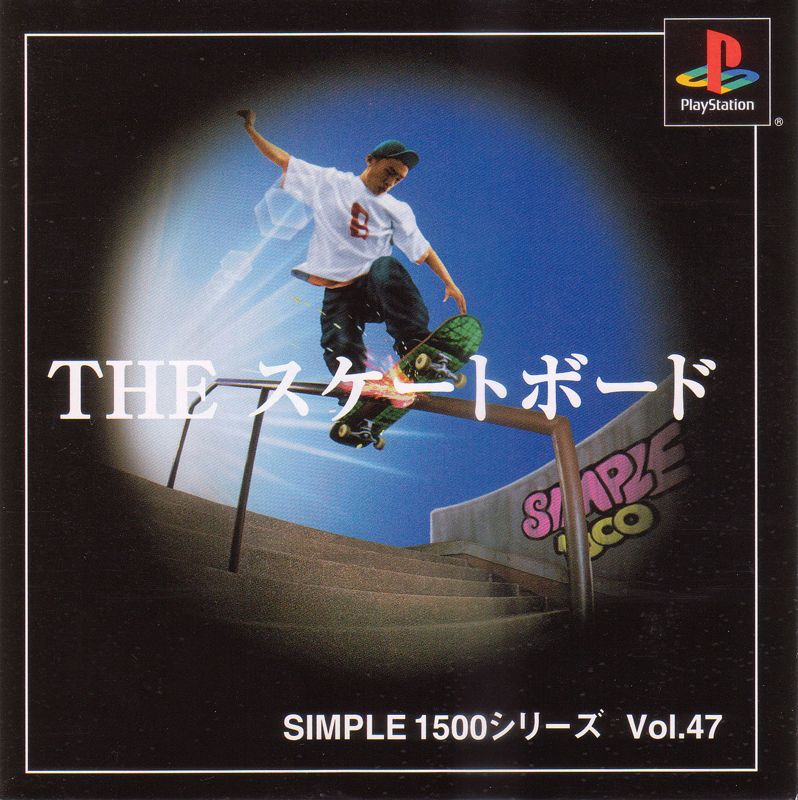
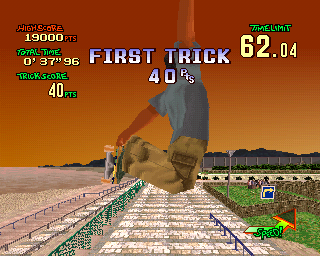
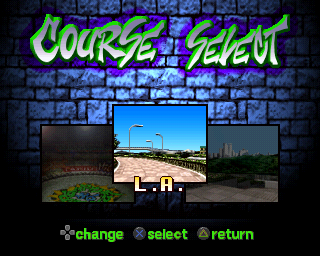
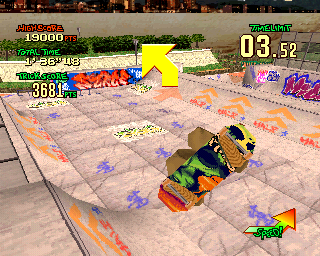
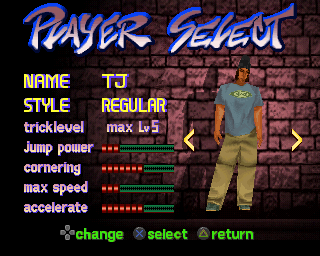
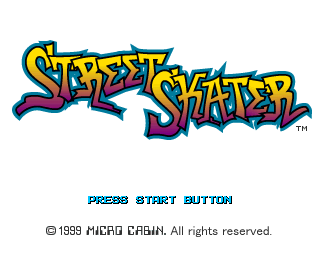
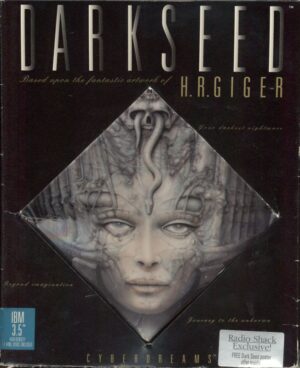


Reviews
There are no reviews yet.